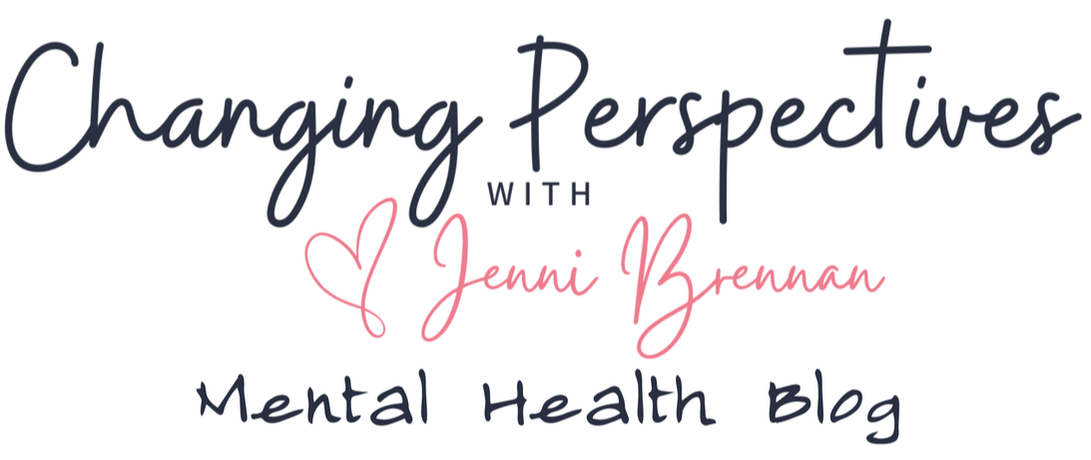|
So many people have fallen prisoner to the fast paced nature of our lives. We wake up and immediately rush head first into the day. Many of us don’t even have time to sit and eat our breakfast, opting instead for breakfast in the car or not at all. We field phone calls and texts on our way to work or while shuttling the kids to school, shout reminders at our phones, and consider it a luxury when we can take a quick break to use the restroom. The evening routine is much the same, especially for those of you with busy children. It’s a sprint to the finish line of the day, scrambling to get dinner tossed on a table, wrapping everything up for the day, and preparing to do it all the next day. Then our day comes to a screeching halt as we climb into bed and wonder why we can’t seem to be able to fall asleep.
Sound familiar? Recently a patient came to me with her head hung in shame as she shared that she has been spending time exploring a new hobby. This new hobby isn’t taking any time away from her family or her responsibilities yet it seemed to her as it had no real value. It wasn’t earning her money. It wasn’t teaching her a new skill. It wasn’t helping anyone. It was just fun. And she felt guilty for having fun. For many of us, we’ve forgotten how to give ourselves permission to slow down, have fun, breathe, and enjoy life. We need to change our perspective on priorities in life and it starts with our own lives. I challenge each of you to take some time and consider how you can implement at least a few of these 9 strategies for improving self-care: 1. Practice healthy sleep hygieneHow do you approach sleep each night? If you are like most people, you finish whatever tasks need to get done for the evening, brush your teeth, change your clothes, hop into bed and then pick up your phone or turn on the tv. I get the temptation. Scrolling mindlessly through social media or perusing blogs like this one can certainly help us to calm down and make us FEEL like we are preparing ourselves for bed. But, truthfully, these actions are examples of poor sleep hygiene. We don’t chomp on sugary candy while we are brushing our teeth, right? So, why are we activating our brains with electronics when we are trying to get ready for sleep? Take stock of your bedroom. Could you add an essential oil diffuser, salt lamp, soft lighting via lower watt light bulbs or even flameless candles? How would some relaxing music make you feel at night? What about reading a book (a real book, or on a kindle — not a tablet with harsh lighting)? Think about how we approach bedtime for babies. We turn down the lights, soften our voices, turn on some white noise, darken the room and just make everything a bit cozier. What would happen if you did the same for your own sleep? 2. Nourish your bodyI know that you know what foods fuel your body well and what foods you eat because they are convenient and/or satisfy you emotionally. Can you make a commitment to increase your focus on nourishing your body in at least one concrete way? Can you make a concerted effort, for example, to increase your water intake or decrease your soda intake? How would it feel to cut back on your sugar consumption or limit your fast food trips? These changes don’t just happen magically. They need planning. I encourage you to pick one small goal to better nourish your body, write it down and figure out how to stick to it. After a week, check back in with yourself and see how you are feeling. 3. Get movingHere we are. We are at the part of the list where people start scoffing and scowling at their computers and phones. “If I HAD time to exercise, I wouldn’t NEED to be reading an article on how to improve my self-care!” I get that. I know how minimizing it can feel when someone tells you that if exercise is important to you, you’ll make time for it. I know that there are many of you out there who literally cannot find time or the funds to go to a gym or invest in workout equipment at home. I’m not one of those people that will try to shame you into making it work. What I will ask you though, is can you find 5–10 minutes a few times each week to go for a walk during your lunch break or in your neighborhood? What about while waiting for your children’s games or practices to start? Could you pop on a Zumba, yoga or dance video on YouTube or download an exercise app that will guide you through a quick routine a few nights each week? What would it take to get you to invest just 5–10 minutes in yourself, not to lose weight or burn calories, but just to get moving and give you a break from working and thinking? 4. Get some fresh airIf you want to be super efficient, you can combine tip #3 and tip #4 so that you are getting moving while outside and getting some fresh air ? Even if you are not moving while getting the fresh air, though, just the act of being outside for a few minutes can reap great rewards. Take a few moments to really breathe in the fresh air. What do you hear? What do you smell? What do you see? Is there a spot at your house or at work or in your neighborhood or outside a coffee shop where you could just sit for a few minutes? Extra challenge: don’t look at your phone while doing it. Just be. 5. Remember that “No.” is a complete sentenceWe are so quick to say no to ourselves. “No, I can’t take a break.” “No, I can’t buy that for myself.” “No, I can’t take that trip with my friends.” “No, I can’t upset my boss or my coworkers.” What would it take for you to give yourself permission to live by the rule that “No.” is a complete sentence? Are you saying yes to people because you feel like you have to? Consider saying no. You can even add filler to the sentence and even add and apology: “No, I’m truly sorry but I can’t.” I’ve seen this shift in thinking become monumental for people. The next time you are asked to do something that you really don’t want to do, think about whether you really NEED to do it. Is it truly worth it? If not, it’s ok to say “No.” You don’t need a “good enough” reason. What do you want to say “No.” to in your life right now? 6. Stop the negative self-talkI explore this concept a lot with my patients when I first meet them and they almost always deny that they do it. “No. I don’t do that. I don’t talk badly about myself.” But, then we get to talking and I start to hear things like “I’m so crazy.” “I don’t know why I do this to myself.” “Ugh. I was so stupid.” “I hate that I’m such a screw up.” Each time it happens, I encourage them to lean into it, to turn that inner negative voice up for a week and really listen for it — not to believe it but to understand where and when it comes into play. Most times, they are shocked to then find that they have a pretty constant loop of negative self-talk running through their heads almost everyday. The first step in stopping that loop is to identify it. Do you have one? Catch yourself next time you find yourself beating yourself up. Would you say something like that to a friend? Probably not. So, why is it ok to be so mean to yourself? Whenever you catch yourself doing it, counter that negative thought with a positive one. For example: “Ugh. I was so stupid. I can’t believe I did that!” can be countered with something like “Ugh. I really am feeling badly about what happened. I have to remember that I am a human and will never be perfect. I will do better next time.” 7. Start a gratitude or reflection journalWhen our heads hit the pillow each night, so often our brains start reminding us of all the things we did wrong or didn’t get done. A good way to dull this noise is to prevent it from even starting. At the end of the day, spend a few moments writing in a gratitude or reflection journal. This can be as fancy as a beautiful leather journal with handmade paper or as simple as a cocktail napkin with some scribbled notes or even a note on your phone. Use whatever method is easiest and most meaningful for you. Write down at least 3 things that you are grateful for and/or that you are proud of. Maybe you drank enough water today. Maybe you went on a walk with your kids. Maybe you put down your phone and sat outside with a cup of tea. Maybe you cleaned out a closet. Maybe you had fun with some great friends. Bringing our attention and focus to the positive can be such a healing way to end our day. 8. Play!I’ve had the great honor of being present with people as they approach the end of their lives. Not a single one has ever told me that they wished they worked more, took less vacations, spent less time with the people that made them happy, or that they regretted the fun moments in their life. Not a single one. Yet, our priorities are so often around work and obligations, making other people money and other people happy. While I’m not at all encouraging you to quit your job or leave behind everyone relying on you, I am telling you that it is ok to give yourself permission to play. Have fun! What would be fun for you? Make it happen 9. Schedule time for yourself and hold it sacredTake a look at your calendar. When can you squeeze in some time to get moving, get some fresh air, take a bubble bath, read a good book or just take a nap? Find it and book it. Pencil it into your own schedule. No, PEN it into your own schedule and hold it just as sacred as you would an appointment for your children or a meeting with your boss. This means you have to be truly mindful when you initially schedule it but then, no changes! Start small — just a 5 minute block is more than you are doing now.
0 Comments
Leave a Reply. |
Mental healthNow, more than ever, we all need a little support to help get us through the rough spots. With all the pressures of life, it can be a challenge to find time to not only take care of yourself but also to truly understand who you even are anymore. Archives
July 2023
Categories
All
|
Sign Up For the Changing Perspectives Newsletter
Changing Perspectives with Jenni Brennan is supported by its audience.
When you purchase through links on this site, an affiliate commission may be earned. Learn More.
When you purchase through links on this site, an affiliate commission may be earned. Learn More.
Changing Perspectives Copyright © 2023


 RSS Feed
RSS Feed
